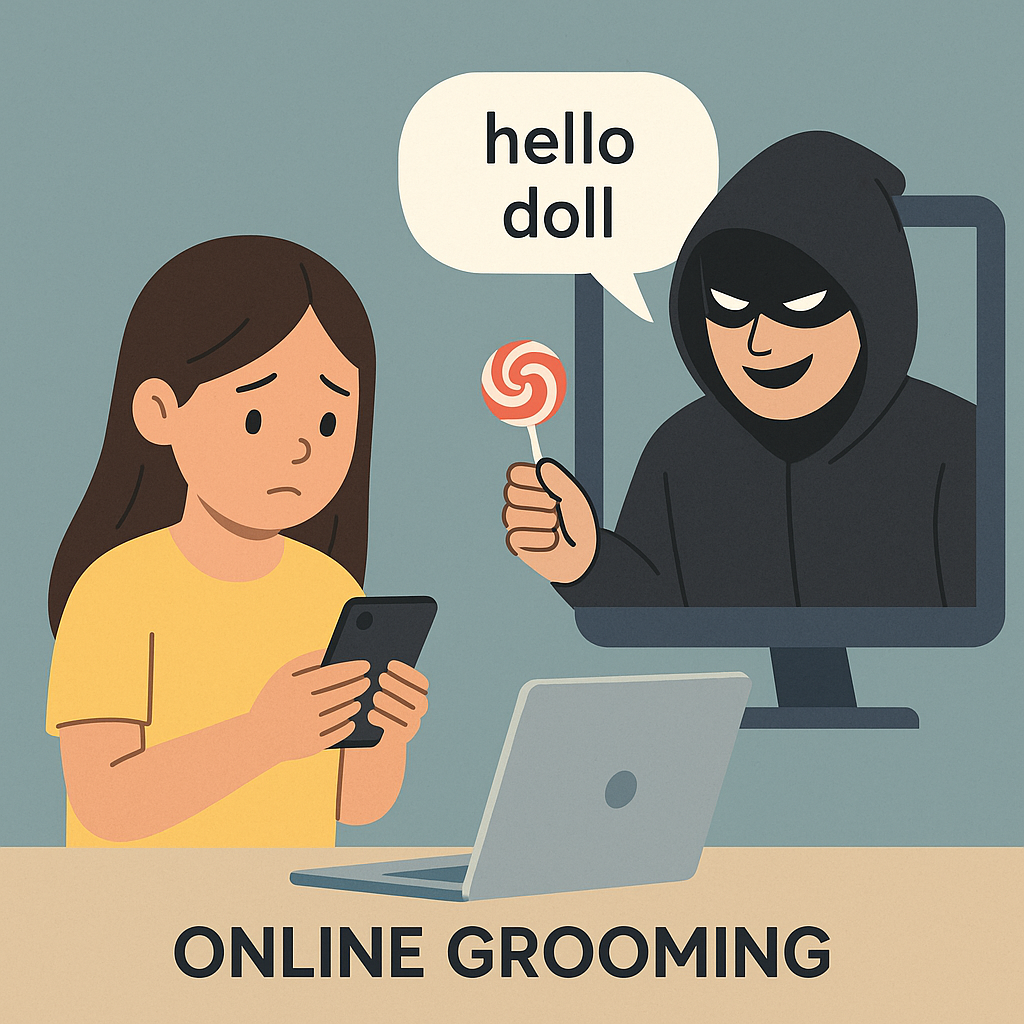

By Sunil Garodia
First publised on 2025-11-25 07:21:01
The National Commission for Women has raised an alarm that should have rung long ago. Online grooming of minors in India has grown faster than our legal response to it. The NCW wants a specific law and tougher punishment. They are right to push hard. We are late, and children are paying the price. Online grooming leads to the exploitation of children in ways parents do not understand yet. Hence, the lawmakers must step in.
The Digital Playground Has Turned Into A Hunting Ground
Parents imagine children scrolling through homework tips, chatting with friends, or watching harmless videos. Predators see something else. They work behind anonymous profiles, fake ages, and friendly greetings. They take weeks or months to gain trust. Then they start nudging boundaries, pushing for private chats, coaxing images, or arranging meetings. This is grooming: it is methodical, it is psychological manipulation and it is happening every day without our even knowing about it.
What The World Has Already Understood
Several countries treat online grooming as a standalone crime because they know waiting for physical abuse to happen is too late.
United Kingdom
Grooming is a specific criminal offense. Even attempting communication with a minor for sexual purposes can lead to prison. Police can intervene early.
United States
Federal and state laws treat online enticement as a serious crime. Investigators use undercover decoys. Courts do not wait for the predator to meet the child.
Australia
Online grooming carries heavy penalties. The law is designed around prevention, not just punishment after harm.
European Union
The EU mandates member states to criminalize grooming, including the act of soliciting sexual images from minors. They treat grooming as abuse on its own.
These countries have one thing in common. They do not rely on generic IT laws. They name the crime. They define the behavior. They shut the door before a child is trapped.
Where India Stands
India does have laws. The IT Act penalizes transmitting obscene content. POCSO criminalizes sexual intent, sexual communication, and attempts to exploit minors. The IPC punishes stalking, harassment, and intimidation.
But grooming hides between the gaps. Predators rarely start with an obvious crime. They begin with compliments, emotional support, and false friendships. They slowly dismantle a child's boundaries. In many cases, parents or police realize what is happening only when the damage is done.
POCSO is powerful, but it reacts after someone crosses a line. Grooming slips through because it is built on manipulation, not direct acts. The law waits for a message that is sexual or an image that is explicit. Predators know how to stay just short of those words until the child is dependent.
What India Needs Now
India needs a clear, targeted law that does four things.
First, define grooming precisely.
Deception, trust-building, emotional manipulation, and attempts to isolate a child. These must be recognized as criminal behavior even before any explicit content is exchanged.
Second, criminalize solicitation attempts early.
If an adult tries to coax a minor into secrecy, private communication, or image sharing, it should be enough to act.
Third, empower law enforcement with digital tools.
Dedicated cyber units, undercover decoys, mandatory data retention from platforms, and faster takedown requests.
Fourth, make platforms accountable.
Social media companies must build stronger age-verification systems, proactive detection of suspicious patterns, and mandatory reporting to authorities.
India does not have to reinvent the wheel. It simply needs the courage to adopt what works elsewhere and make it sharper.
Are Existing Laws Enough?
POCSO is a strong foundation. But grooming is a shape-shifting threat. It moves quietly, hides in plain sight, and escalates slowly. The law must respond to this kind of crime at the stage where a child is being reeled in, not after they are trapped.
So the honest answer is simple: POCSO is necessary and powerful. But it is not enough for this new-age crime.
The Cost Of Waiting
Every delay means another child pulled into a conversation they cannot understand, with a stranger who understands far too much. It means another family left wondering how something so dangerous reached their home through a screen that looked harmless.
The NCW is right to demand specific legislation and tougher punishment. The country should not debate whether this is needed. The only question that matters is why it was not done earlier.
India's children cannot wait. The law must rise to the threat that has already arrived.
Note: The lead image was generated with AI- ChatGpt











